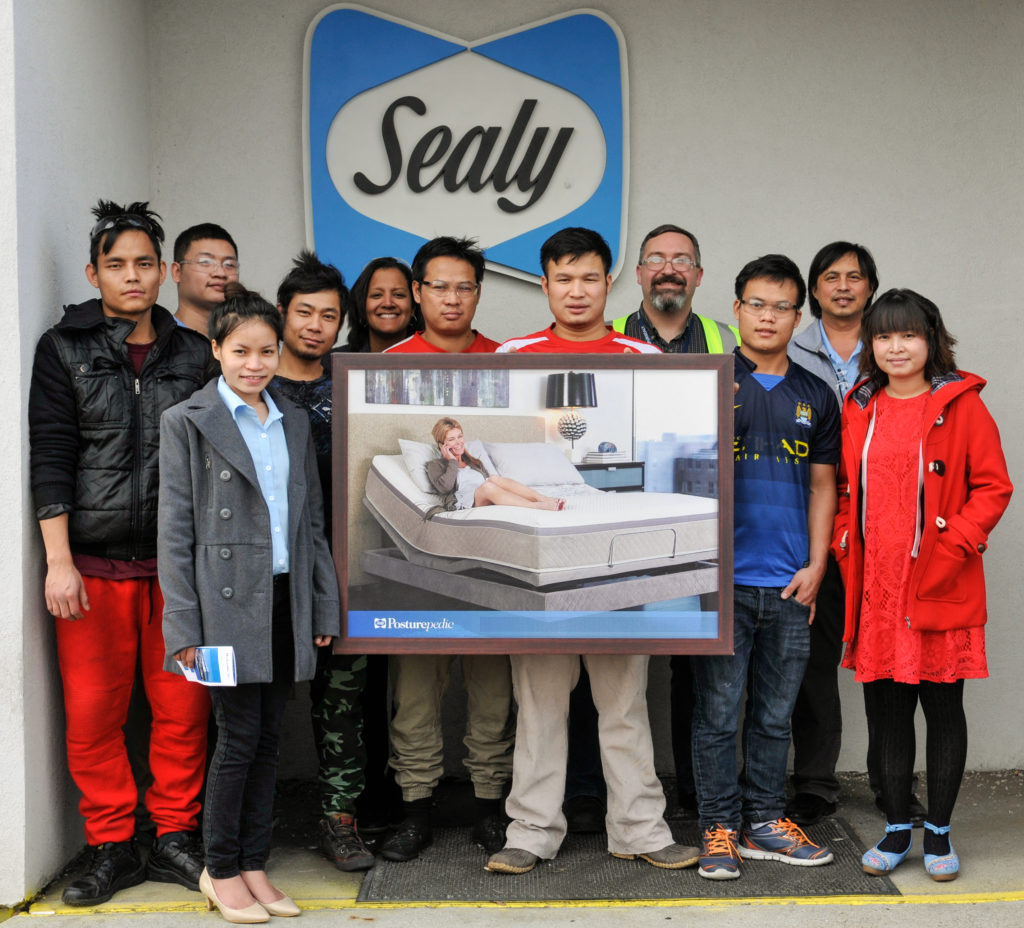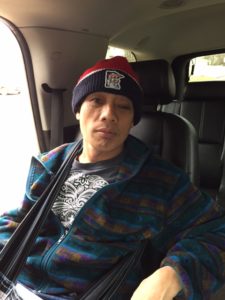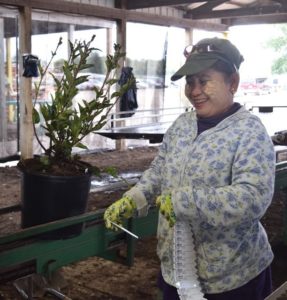
Tempur-Sealy has employed 10 Karen workers through the relationship they built with KOM’s employment team.
Pah Yu Hser grew up as a farmer in Burma. When the Burmese soldiers came to his village one day, he fled to Thailand and found shelter in Mae Ra Moe refugee camp. During his time there, he would sneak out of the camp and try to find daily labor from people living in nearby villages. On the days he was fortunate enough to find work, he would plant corn, feed animals, clean buildings, or do any other work to earn a little money for his family.
But working outside of the camp was always risky for Pah Yu Hser, since he only had refugee status.
“I had to hide or run away when the Thai police came to the place I was working,” said Pah Yu Hser. “I was never arrested, but I always was always afraid.”
Pah Yu Hser lived in Mae Ra Moe refugee camp for 15 years. In November 2015, he and his family resettled to the U.S. They got an apartment in Minnesota and his four children began school. Five months later, his cousin connected him to KOM to find a job. He met with employment counselor Thomas Ritnorakan, and shortly after, he ended up finding a production job at Tempur-Sealy.
“I like my job at Tempur-Sealy. It’s long-term, has good pay, and has a lot of benefits,” said Pah Yu Hser. “I also don’t need to fear the Burmese soldiers or Thai police anymore. There is safety in America.”
Pah Yu Hser is just one of the clients that KOM’s employment program team has placed in a job. Every year, the employment team finds job for more than 250 refugees from Burma.
KOM’s main employment program is funded through the Resettlement Program Office (RPO) as part of Refugee Employment Services (RES). Through this program, KOM employment counselors facilitate job placement and provide employment support for refugees who have lived in the U.S. less than 5 years.
When KOM first began in 2009, employment counselors typically only found jobs for clients at meat-packing plants in Greater Minnesota. As a result, Karen workers would drive over an hour every day to work and back. Some workers even found apartments near their jobs to live in during the week and then drive back to St. Paul on the weekend to see their family.
“It’s changed a lot since then,” said Ritnorakan. “Now we place most of our clients in St. Paul or close to St. Paul. It makes it easier for the clients and they don’t have to be separated from their families.”
KOM now partners with employers such as Bailey Nurseries, BIX Produce, Japs-Olson, and Tempur-Sealy. These employers have been proactive about providing job materials in Karen language, hiring Karen supervisors or interpreters, and understanding the background of their employees.
“We love Karen workers because they are hardworking and loyal,” said Joe Bailey, owner of Bailey Nurseries in Newport, MN. “Last year we had almost 100 Karen employed.”
When an employer reaches out to KOM with an interest in hiring Karen workers, KOM employment counselors meet with the human resources staff from the employer to see if it would be a good fit for their clients.
“Jobs that are most attractive to our clients are those with good pay and flexible hours,” said employment counselor Mahnthurai Min.
If the employment team agrees the employer would be a good fit for Karen workers, then they start helping interested clients fill out job applications. KOM employment counselors also go with clients for interviews and the first day of work.
“Employers trust us to find people to work for them,” said Ritnorakan. “KOM has a good reputation and employers usually like Karen workers.”
The employment services team is comprised of two RES employment counselors, two Minnesota Opportunity Corps employment navigators, two DEED employment counselors, and one program manager. Together, they seek to connect Karen and other refugees from Burma with sustainable jobs that have opportunity for growth.


 (651)788-7593
(651)788-7593



